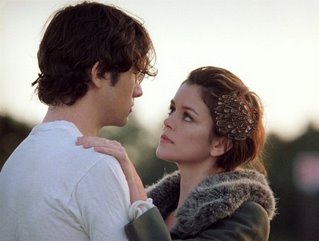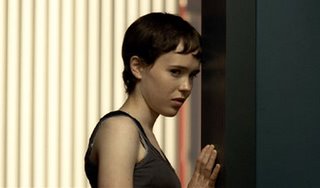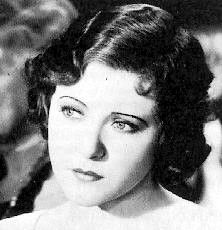Since the advent of AMERICAN BEAUTY and that Pepsi commercial with Britney Spears (where you see even former presidential nominee Bob Dole drooling over her), we've been collectively in a spiral of youth worship. Men are encouraged to have mid-life crises, get that jet ski, quit their jobs and back out of their marriages (to shrill hellish Annette Benning-style wives) and go after the 18-23 year old of their dreams. Some of us have gone and done this, some of us have regretted it, some have married them and had a second batch of kids, THEN lived to regret it. Some just keep it a fantasy... and get unreasonably hostile towards girls that attract them in that way (and then the girl has to report them) and so it goes.
But WHO grows out of it? Who transcends it? Was it always this way? What happened?
In my estimation, it all began with the death of John Lennon in December of 1980. Before that, America was a place with a lot more touching: parents and babysitters of both genders touched children, played with them, rolling around on the floor, tickling and sitting on laps, and so forth. Then Lennon got shot and the peaceful concept of "love" as a force that transcended sex and politics, love as a unity of all people of all ages and races rather than of sex partners and sex partners only, was put on the shelf.
Then came this scare in the early 1980s of children being molested at day care centers. Suddenly every kid was having recovered memories of being molested at their day care center. From then on, the panic over improper touching of children completely overrode the fact that children need to be touched, not sexually but like monkey-grooming style. Now sex seems to be the only way these lost girls can get their father back, symbolically speaking. Here in our fatherless society, these lost girls wear all this Bob Dole-approved sexy stuff in order to snare the attention of the older man, which they then spurn, because they don't really want the sex, so much as the love and attention, masked in the idea of the power of the tease. They oscillate, like a dangling carrot before the horny horse, trying to lure it into some kind of paternal/older brother surrogate forward movement without getting bitten in half.
Older Male educators or others who work with young women on a regular basis sometimes unconsciously learn to parlay this need into a tool for getting the young women to do their homework or get into AA. It's only when the man is going through a midlife crisis, is sexually frustrated and constantly fighting with a belittling foreign wife, etc., that this otherwise positive father/older brother surrogate situation can run afoul of the law, or common decency.
This is brilliantly represented in the film, "
Blue Car," for example, where a fatherless young girl befriends her English professor, who mistakes her need for a strong paternal force as a romantic crush which he is only to happy to equivocate having a tragic home life that's rendered his concept of family to shards of meaningless disconnect. The film is devastatingly honest and highly recommended.
A less honest film is "
Hard Candy" wherein a little Red Riding Hood style disem-baller played by the able Ellen Page is forced to spout reams of unrealistic dialogue with this bland pedophile played by a bland actor's workshop type. The worst aspect of it: she
doesn't actually cut off his balls, after all this build up, as if to actually do so would be going too far. Fuck that! Castrate the prick!!
Instead, the movie itself is castrated, hesitating at the moment of truth in grand punter fashion. Patriarchy's castration anxiety strikes again! Fuck that.
So now, everything is filtered through the sex looking glass in a way it hasn't been since the great Anita Hill PC-putsch of 1990-1992... Now it's all somewhow OK that immature men run out on their daughters to be free of family responsibility, only fall in love with a fatherless teenager in a musical chairs of pseudo-incest..
But is sex the ultimate goal, or merely the healing "touch" of another human, the same kind of touch each would have gotten in the 1970s in an EST-style encounter group, all without having to feel guilty? Am I just imagining the greater liberty of that decade? I was only a child, age 3-13, but I molested three babysitters, only one was male. I remember clearly: I started all of it. I was no victim. Very little of it would have been considered indecent at the time, but now --
they'd be in jail and/or I'd be in therapy, encouraged to see those experiences as violation rather than exploration. Not that I'm not. And not that this is meant to demote the other version - if I was a cute girl instead, who knows what legit traumas I may have endured in those same situations? I just mean, well... what the fuck do I mean? That it's a big chthonic mess?
What kind of goal
is sex, ultimately, anyway? The media uses it to sell soap, for God's sakes... but everyone whose had a post-orgasmic depression knows that ultimately it's a genetic con job. Don't fall for it! Be nice! Auto-castrate yourself and be free forever!






